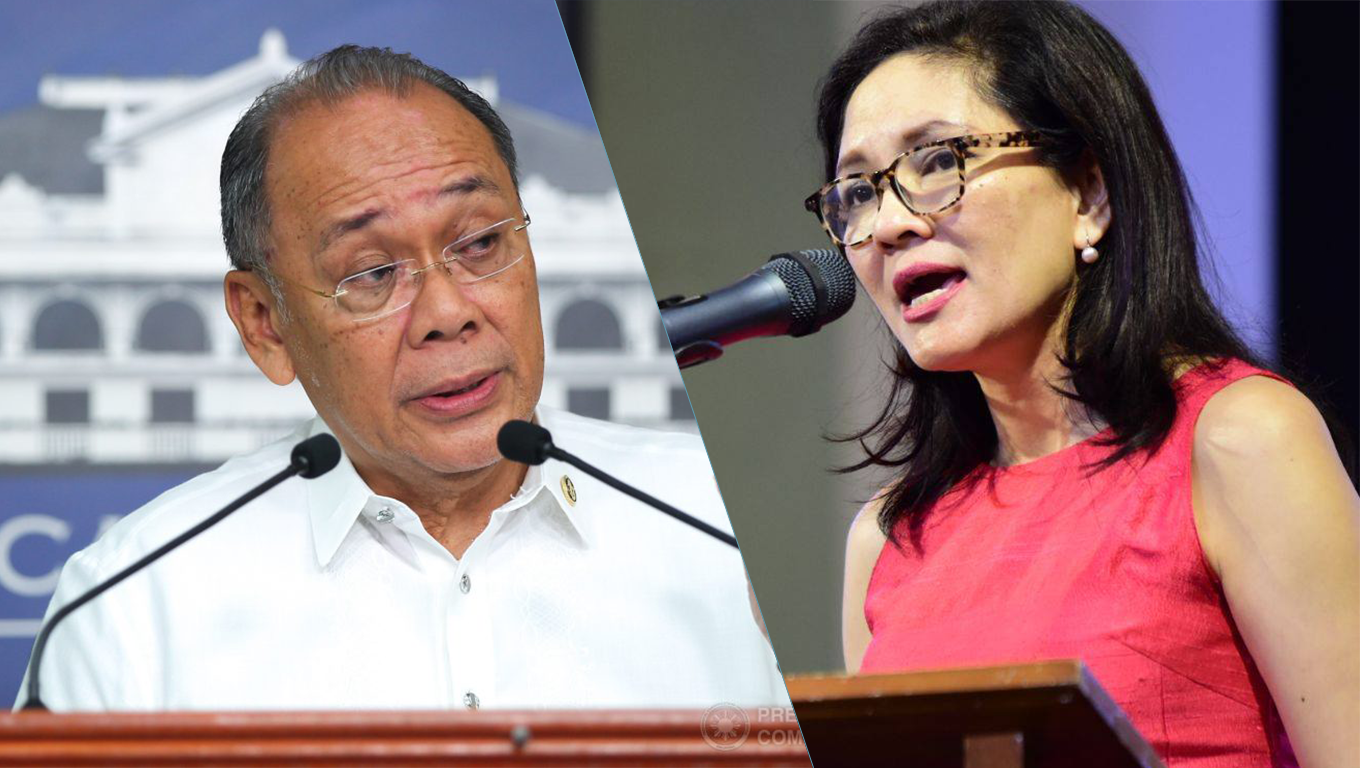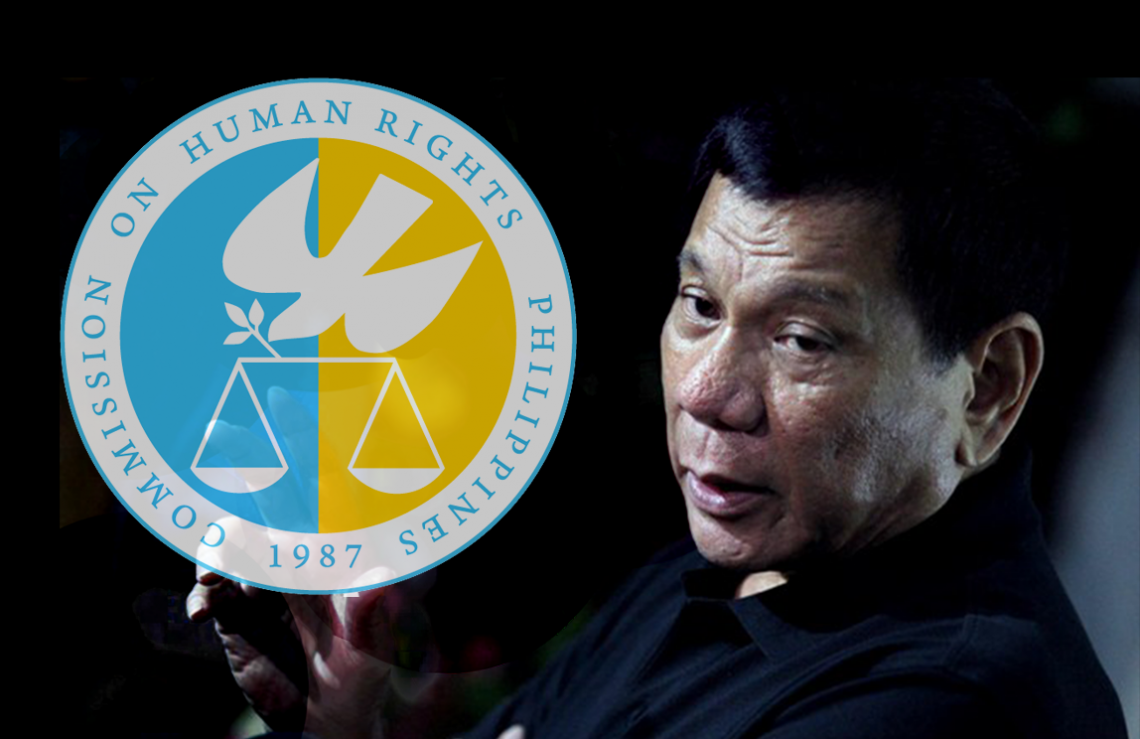When President Rodrigo Duterte threatened to abolish the Commission on Human Rights (CHR), Presidential Spokesperson Ernesto Abella was quick to dismiss that the president was simply “expressing his frustration.”
A few weeks later, House Speaker Pantaleon Alvarez threatened to give the CHR “zero budget.” Senator Risa Hontiveros came to the agency’s defense, saying the move would be unconstitutional.
Abella and Hontiveros both said the CHR is a Constitutional Commission. Were they correct in saying so?
STATEMENT
Pressed for comment on the president’s remark during a July 21 media briefing, Abella said:
“However, [the CHR] is a Constitutional commission and it cannot be abolished by mere legislation. The chairperson and his members however serve at the pleasure of the President.”
(Source: Transcript of Presidential Spokesperson Ernesto Abella with Chairman William Ramirez Philippine Sports Commission, Press Briefing, July 27, 2017)
Responding to Alvarez’s move to defund the CHR, Hontiveros on Aug. 8 said:
“The plan by some legislators to cut to zero the Commission on Human Rights’ 2018 budget is unconstitutional. The CHR, like other constitutional commissions, such as the Office of the Ombudsman, and the judiciary, enjoys fiscal autonomy.”
FACT
The CHR is not a Constitutional Commission.
Article IX of the 1987 Constitution established three independent, fiscally autonomous commissions: the Civil Service Commission (CSC), the Commission on Elections (Comelec), and the Commission on Audit (COA).
The CHR is created independently by a separate constitutional provision, Article XIII Section 17and Corazon C. Aquino’s Executive Order No. 292 or the Administrative Code of 1987.
The Administrative Code reads: “There shall be in accordance with the Constitution, an Office of the Ombudsman, a Commission on Human Rights, and independent central monetary authority, and a national police commission.”
Following the ratification of the Constitution, the CHR’s existence was declared to be effective on May 5, 1987 through Aquino’s Executive Order No. 163.
BACKSTORY
Hontiveros argued that the CHR, a constitutional body, has fiscal autonomy.
Fiscal autonomy is “a guarantee of full flexibility to allocate and utilize resources with the wisdom and dispatch that their needs require,” the Supreme Court defined in Bengzon v. Drilon.
It simply means “freedom from outside control.”
But the fiscal autonomy clause in the Constitution is only for the three Constitutional Commissions: the CSC, COA and Comelec.
The CHR only has limited fiscal autonomy, the high court ruled in 2006 when it partially granted the CHR’s motion for reconsideration in CHR Employees Association (CHREA) v. CHR.
Its autonomy is limited “in a sense that it is entitled to the automatic and regular release of its approved annual appropriations,” the SC said, citing proceedings of the 1987 Constitutional Commission.
“(T)his court is convinced that the ConCom had intended to grant to the [CHR] the privilege of having its approved annual appropriations automatically and regularly released, but nothing more,” the court decision reads.
Sources:
Bengzon v. Drilon (G.R. No. 103524)Bengzon v. Drilon (G.R. No. 103524)
CHR Employees Association (CHREA) v. CHR (G.R. No. 155336)
Executive Order No. 163, s. 1987
Executive Order No. 292, s. 1987 or the Administrative Code of 1987
The Constitution of the Republic of the Philippines
(Guided by the code of principles of the International Fact-Checking Network at Poynter, VERA Files tracks the false claims, flip-flops, misleading statements of public officials and figures, and debunks them with factual evidence. Find out more about this initiative.)



